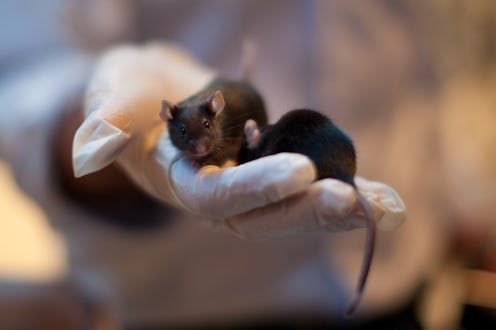News
Science Just Got Closer To Reversing Aging
Is this the miracle cosmetic companies are always teasing us about? Harvard researchers, in conjunction with two other research teams, have managed to reverse the skin tissue of 2-year-old-mice to a six-month-old state. In other words, scientists may have just found a way to reverse the process of muscular aging. No big deal.
Lead researcher and Harvard genetics professor Dr. David Sinclair said the teams used the chemical nicotinamide adenine dinucleotide (NAD) to "revitalize" old cells. In skin cells, the nucleus (the brains of the cell) and the mitochondria (where energy is stored), stop sending signals as we age. The result? A communication breakdown in how much energy the cell should produce, making aging more apparent.
In the mice trial, the NAD boost fixed the communication so that the cells produced more energy, making everything look pretty perfect. The reversal in mice's skin-age was akin to a 60-year-old looking like a 20-year-old again.
Or, to put it in terms for us lay people: “The aging process we discovered is like a married couple — when they are young, they communicate well, but over time, living in close quarters for many years, communication breaks down,” said Sinclair. “And just like with a couple, restoring communication solved the problem.”
If the compound was administered early enough, says postdoc researcher Dr. Ana Gomes, it might be possible to keep youthful looking skin in humans. As in, possibly, for your entire life.
"From what we know so far, we don't think you'd have to take it from 20 years until we die," she said. "It seems we can start when we're already old, but not too old that we're already damaged. If started at 40 you would probably have a much nicer window of health aging — but I would guess that, we have to do clinical trials."
Clinical trials are set to begin in 2015.
The research, published in Cell , was a collaboration between Harvard Medical School, the National Institute on Aging,and the University of New South Wales, Sydney.
Welcome to the future, people. We don't foresee any sort of Tuck Everlasting problems there.
